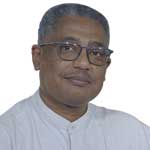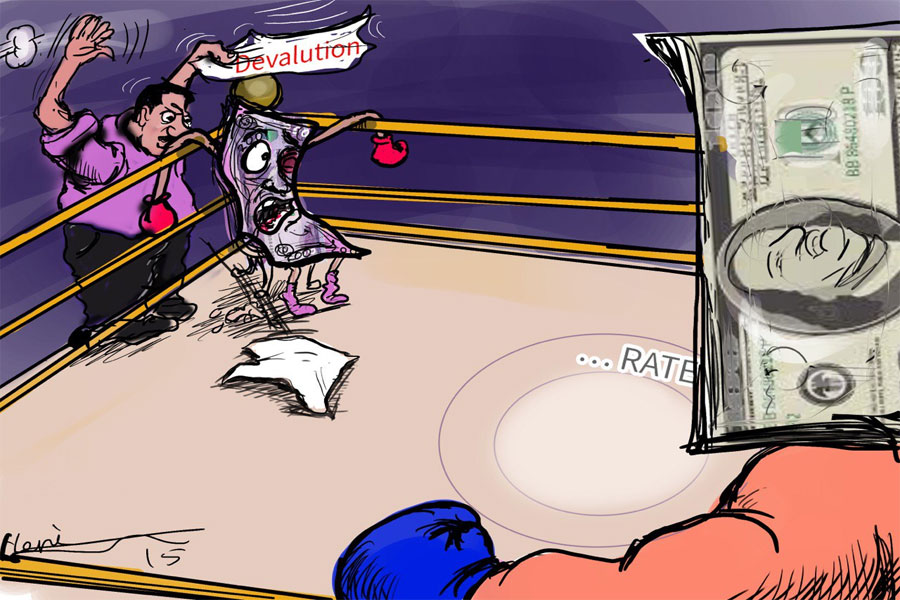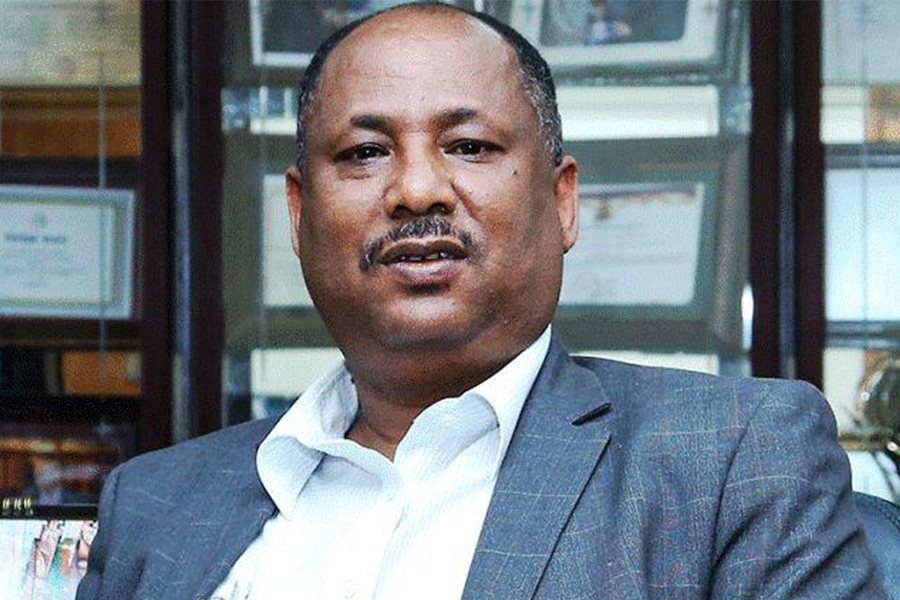
Radar | Apr 15,2023
Aug 10 , 2019
By Tibebu Bekele
What motivates a person to become a political leader is a wonder. Whatever the motivation, it must be a burning desire, an unquenchable fire. Because let’s face it, it is not an easy calling.
Especially in today’s technology-mad world where, in the words of Prime Minister Abiy (PhD), everyone with a mobile phone is a journalist.
There is no hiding place. There is no privacy, not only for the politician, but also for their families and friends. The name calling, the insults and even the physical danger are unbelievable.
Why would one want to put oneself and their loved ones through all this? Surely, there are easier ways of making a living.
The most common answer politicians give is that they desire to help the people, a calling to serve the public is what propels them into this most difficult of careers. Seen from that light, of course, it is an honourable calling, a respectable career that contributes to the common good with unparalleled opportunity to leave a great legacy.
A closer look at those answers presumes an underlying moral value — the desire to do good. The vision to make the world a better place. The hope to elevate the destiny of one’s community. It suggests a connection to and love of that community. All these then logically lead us to believe that moral values must undergird politics. One enters the profession to do what is good and what is right. If this is so, why is it in practice that such inspiring leaders are few and far between?
Perhaps, a career that starts with such idealism gets slowly dragged down into the swamp of compromise. The desire to lead is curbed by the need to be cheered. The idealism of change gets reigned in with the pragmatism of working for what is achievable, instead of what is desirable. Perhaps the thrill of winning becomes so addictive that it becomes an end in itself instead of a means to a higher goal. That results in seeking power for its own sake instead of as an instrument of achieving more noble goals.
There has always been this age-old conflict between what is right and what is possible. The mark of great leaders and statesmen is their ability to negotiate this murky moral dilemma, the ability to negotiate what is possible without surrendering the moral ground of what is right. Once a politician starts to pay the price of his conviction for the pleasure of his victories, that moral slide knows no bounds.
Of all systems of government, democracy is the murkiest, because the whole architecture is based on compromise. Unlike authoritarian regimes, there is no one governing ideology that claims moral absolutism. No politburo passes the ultimate truth from the great leader with everybody just marching to that beat. Instead, every decision, every bill tabled becomes a moral test, some more stern than others, but a moral test all the same. Because even seemingly simple decisions still require a search of the politician’s conscience for moral consistency. It is the small concessions in the grey areas that eventually, slowly, imperceptibly unmoor the aspiring politician from his moral foundations.
As we approach election season in Ethiopia, all politicians will do well to do some soul searching before the whirlwind of campaigning starts. Before they take in the sweet cheering of adoring fans or the ugly booing of a hostile crowd, they should face the silence of their conscience.
Why are they doing this? What is it they want to achieve? Are they still loyal to the principles they started with?
If not, they should quit. Because political leadership requires moral courage. And those who lack a higher purpose certainly need a career change.
PUBLISHED ON
Aug 10,2019 [ VOL
20 , NO
1006]


Radar | Apr 15,2023

Editorial | Dec 17,2022

Sunday with Eden | Mar 13,2021

Radar | Jul 13,2024

Editorial | Oct 03,2020

Verbatim | Apr 26,2025

Radar | Jun 26,2021

Radar | Dec 25,2023

Viewpoints | Mar 23,2019

Viewpoints | Aug 18,2024

Photo Gallery | 149129 Views | May 06,2019

Photo Gallery | 139409 Views | Apr 26,2019

My Opinion | 134627 Views | Aug 14,2021

My Opinion | 131198 Views | Aug 21,2021

Dec 22 , 2024 . By TIZITA SHEWAFERAW
Charged with transforming colossal state-owned enterprises into modern and competitiv...

Aug 18 , 2024 . By AKSAH ITALO
Although predictable Yonas Zerihun's job in the ride-hailing service is not immune to...

Jul 28 , 2024 . By TIZITA SHEWAFERAW
Unhabitual, perhaps too many, Samuel Gebreyohannes, 38, used to occasionally enjoy a couple of beers at breakfast. However, he recently swit...

Jul 13 , 2024 . By AKSAH ITALO
Investors who rely on tractors, trucks, and field vehicles for commuting, transporting commodities, and f...

Sep 6 , 2025
The dawn of a new year is more than a simple turning of the calendar. It is a moment...

Aug 30 , 2025
For Germans, Otto von Bismarck is first remembered as the architect of a unified nati...

Aug 23 , 2025
Banks have a new obsession. After decades chasing deposits and, more recently, digita...

Aug 16 , 2025
A decade ago, a case in the United States (US) jolted Wall Street. An ambulance opera...

Sep 7 , 2025 . By BEZAWIT HULUAGER
Brook Taye (PhD), the chief executive of the Ethiopian Investment Holdings (EIH), is...

Sep 7 , 2025 . By BEZAWIT HULUAGER
For decades, Shemiz Tera in the Addis Ketema District of Atena tera has been a thrivi...

Sep 7 , 2025 . By NAHOM AYELE
A dream of affordable homeownership has dissolved into a courtroom showdown for hundr...

Sep 7 , 2025 . By YITBAREK GETACHEW
The federal tax officials' abrupt tax reform, which suspends the long-standing Turnov...